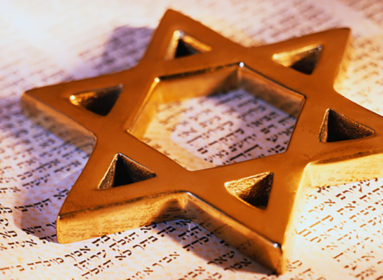
By Rabbi Tzvi Hersh Weinreb
We often hear the term “hero worship,” but “worship” is not the most appropriate use to which to put one’s hero, certainly not from a Jewish theological perspective. We have heroes in our Biblical narrative. But we do not “worship” them. Worshipping a human being is sacrilege in our faith. This is one of the basic distinctions between Christianity and Judaism.
What, then, is the proper attitude to have towards heroes?
Our heroes are individuals after whom we can model ourselves. They must be individuals whom we so admire that we are motivated to learn from them and strive to adopt their beliefs and behaviors. They are not meant to be our idols. They are meant to be our ideals. The Rabbis put it this way: “A person must always say, ‘When will my actions reach the level of the actions of my forefathers?’”
This Shabbat, we read the third in this year’s cycle of Torah portions, Lech Lecha (Genesis 12:1 – 17:27). Heroes were absent from the first two parshiyot! Adam and Eve were not heroic. Noah was a fine man, a pious man, but hardly a hero.
In this week’s Torah portion, however, we encounter an individual worthy of emulation at last. We finally have our first Biblical hero, Abraham our Forefather. And, we learn enough about him to develop a checklist of 10 qualities that typify a true hero. Here’s my list:
A hero takes risks. He is not complacent. He relishes challenging assignments, even when their outcomes are uncertain. Abraham leaves his birthplace, home, and family to journey as a stranger to an unknown land.
A hero is sensitive to the needs of the unfortunate. He steps in and does whatever is necessary, often at great personal cost, to meet those needs. Abraham’s brother Haran dies young and leaves an orphan, Lot. Abraham adopts Lot and becomes his foster father, taking him wherever he went, so that Lot eventually shares in Abraham’s success.
A hero engages in outreach. He does not keep his spiritual achievements to himself. When Abraham sets out on his journey, he takes with him not only his wife and orphaned nephew, but also “the souls that he and Sarai made in Haran.”
A hero builds “altars.” He helps people learn about the Almighty by changing the physical reality of their environment. In this parsha alone, we learn of three such altars in Elon Moreh, in Beth El, and in Hebron, which Abraham left standing for others to use even after he himself had departed.
A hero pays his debts. He is thankful to those who helped him, and he demonstrates his gratitude. After Abraham descends to Egypt to escape famine, he is careful, upon his return to Canaan, to stop at all the stations he passed on his way down to Egypt. As Rashi teaches us, he stops at each station to show his gratitude and to repay the debts he incurred on his way.
A hero strenuously avoids conflict and strife. When Abraham realizes that the competition between his shepherds and those of Lot will inevitably lead to conflict, he tells Lot, “Let there be no strife between us, let us go our separate ways.”
A hero makes friends and alliances. He respects those who differ from him culturally and religiously. He seeks their counsel. Abraham has three such friends and allies: Aner, Eshkol, and Mamre. They are baalei berit Avram; they set up a covenant among themselves. The Rabbis tell us that Abraham seeks their advice concerning circumcision.
A hero fights for his friends. Lot and his family are taken captive in a great war. When Abraham hears of the plight of his nephew, despite the fact that Lot has long abandoned him, he instantly assembles a small army and frees the captives.
A hero is not in the game for personal gain. The King of Sodom, who lost the war until Abraham came upon the scene, offers Abraham all the booty. But Abraham will have none of it. He refuses to even take “a thread or a shoelace.”
A hero takes care of his subordinates. Abraham declines reward for his military intervention on behalf of the King of Sodom but insists that all of his underlings are duly rewarded. “Hem yikchu chelkam, they must get what they deserve!”
This list omits several of Abraham’s heroic virtues from this week’s parsha, and includes none from next week’s parsha. I leave it to you to study both parshiyot carefully and come up with 10 more criteria for our list.
Rabbi Tzvi Hersh Weinreb is executive vice president emeritus of the Orthodox Union. His newly released Person in the Parasha: Discovering the Human Element In the Weekly Torah Portion, is a compilation of his weekly Person in the Parsha column.








 Southern New England Jewish Ledger
Southern New England Jewish Ledger













